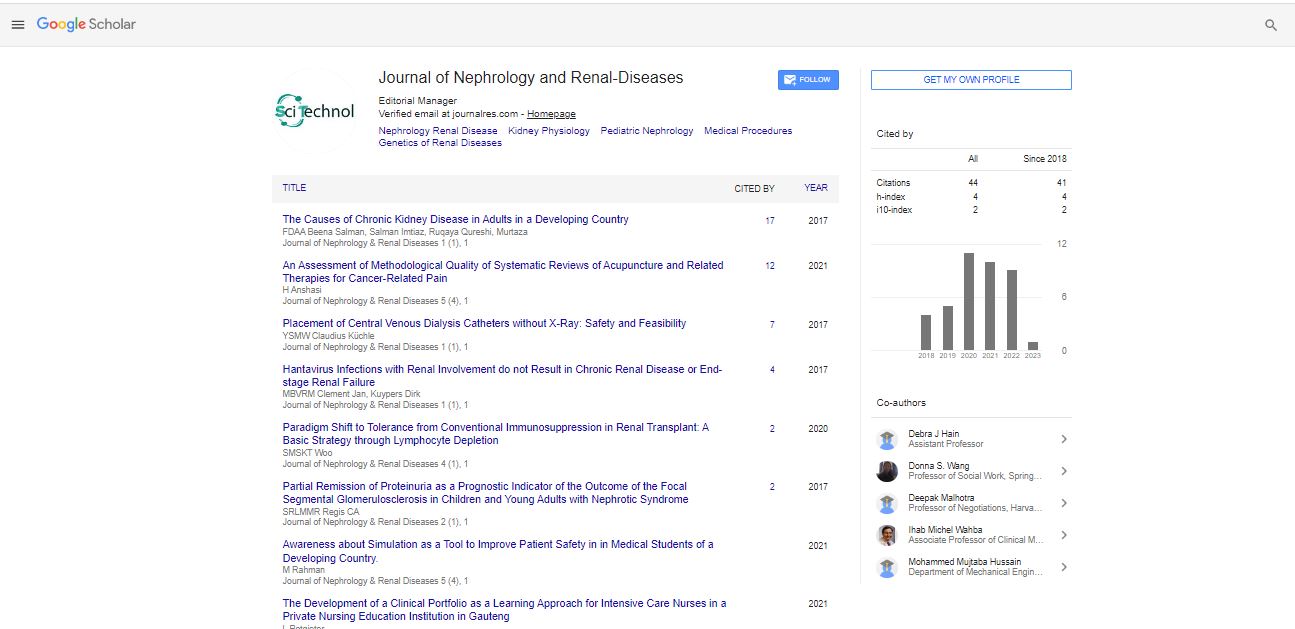Genipin induce apoptosis in two human glioblastoma cells lines (U87MG & A172)
Narges Ahani, Mohammad Hossein Sangtarash, Majid Alipour Eskandani and Massoud Houshmand
University of Sistan and Baluchestan, Iran
National Institute of Genetic Engineering and Biotechnology, Iran
University of Zabol, Iran
: J Nephrol Ren Dis
Abstract
Genipin, a compound derived from Gardenis jasminoides Ellis fruits that is a specific UCP2 inhibitor. Uncoupling protein 2 (UCP2) is a mitochondrial carrier protein that uncoupling oxidative phosphorylation from ATP synthesis. Several studies revealed that UCP2 is broadly over-expressed in leukemia, lung, ovarian, prostate, testicular, bladder cancers. In this article, we studied the Warburg effect after treatment with genipin, in glioblastoma cell lines (U87MG and A172) by targeting UCP2. The cytotoxic effect of genipin, on these cell lines was measured by MTT, Trypan blue exclusion and Colony formation assays, in the presence of various concentrations at different time intervals. We assessed apoptosis and measure intracellular reactive oxygen species (ROS) by flow cytometry. Expression of UCP2 (as a main mediator of Warburg effect) and some of genes involved in apoptosis (such as: Bcl2, Bax, Bik, Bak, Cytochrome c) were analyzed by Real-time quantitative PCR. The anti-proliferative effects of genipin on the growth of glioblastoma cell lines have been shown in all of these assays. Flow cytometric analysis showed that genipin induced apoptosis in cell lines and increased mitochondrial ROS levels. After treatment, UCP2 and Bcl-2 genes are downregulated and Bax, Bak, Bik, Cytochrome c genes are upregulated. In conclusion, genipin induced apoptosis in cell lines and suppress Warburg effect via UCP2-related mitochondrial pathway through the induction of intracellular ROS.
Biography
E-mail: nargesahani@hotmail.com
 Spanish
Spanish  Chinese
Chinese  Russian
Russian  German
German  French
French  Japanese
Japanese  Portuguese
Portuguese  Hindi
Hindi 
